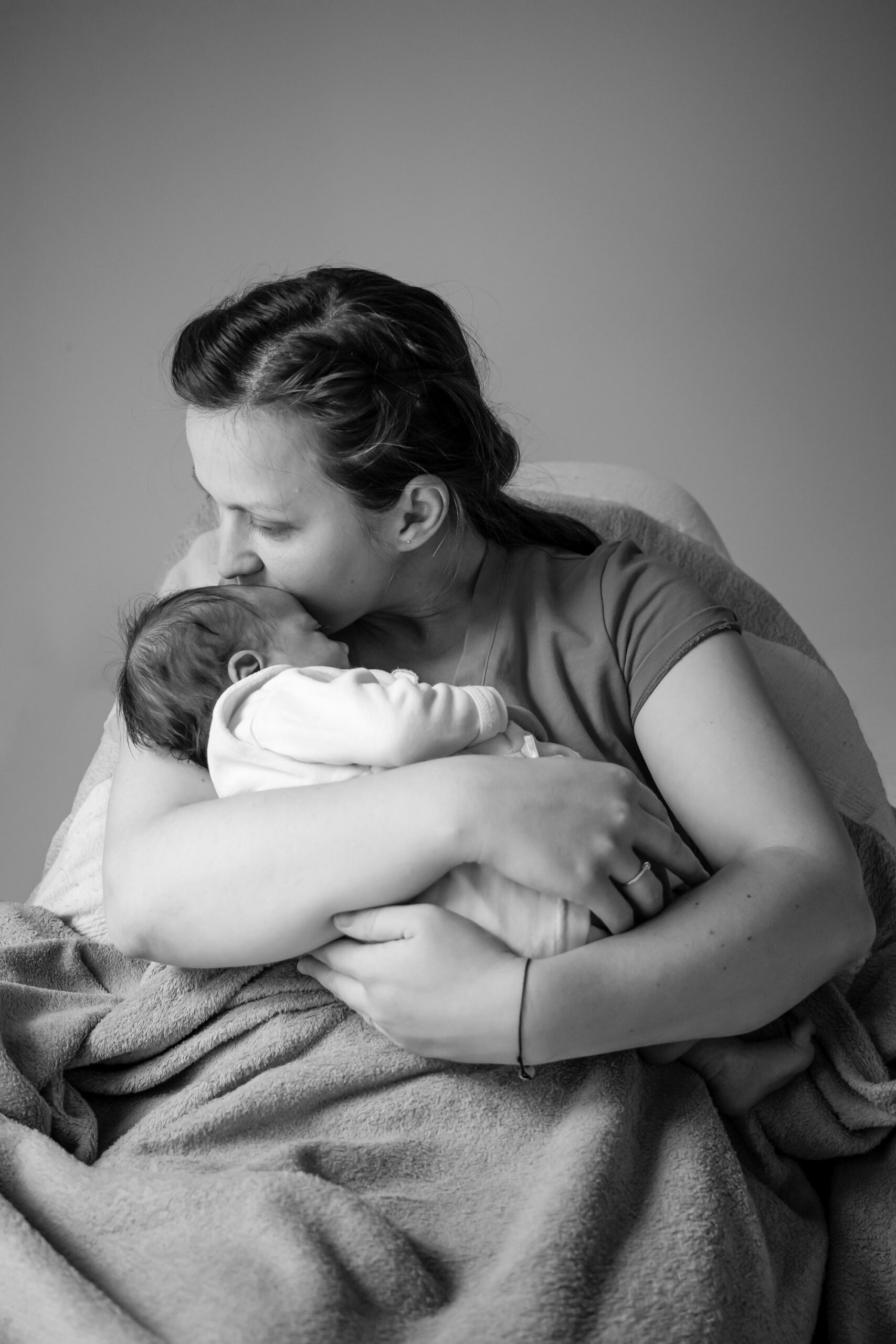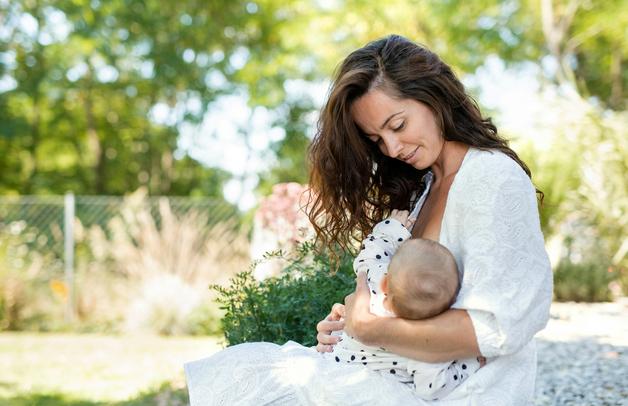Welcoming a tiny life into your arms—such a powerful turning point. For months, anticipation builds, and the very thought of your newborn may have seemed drenched with happiness. Yet, in reality, parenthood’s first days often come with swirling emotions: immense joy and deep sadness intertwining, sometimes in a single breath. Many parents ask themselves, “Am I adapting as I should?” or “Why do I feel so overwhelmed when I thought everything would be perfect?” These thoughts are more common than you may realise, especially when postpartum depression settles in. Discovering the distinction between normal emotional shifts and true postpartum depression, learning why the body and mind feel as they do, understanding signs to watch out for, and finding practical strategies for recovery—every point matters for growing families. Here, you’ll find scientific explanations, empathy, and actionable tips to steady you during these unpredictable weeks and months.
The emotional whirlwind after childbirth
Bringing home a newborn means encountering an emotional storm: sudden bursts of happiness, tears for no clear reason, perhaps a sense of inadequacy that lingers at odd hours. This is not simply a test of willpower. When pregnancy ends, hormone levels—especially oestrogen and progesterone—drop rapidly, reshaping both physical sensations and the emotional landscape. The famous “pregnancy glow” may fade; the perineum and other tissues can feel soft or sore; tiredness becomes a constant companion.
You might hear, “You should feel lucky!” or “Other families manage just fine”—but comparisons rarely help, and every parent’s journey is distinct. For most, “baby blues” appear as brief spells of moodiness, irritability or crying. These, however, subside within a week or two and don’t hinder daily life. In contrast, postpartum depression persists, making even simple tasks feel monumental. Recognising what is just part of early parenthood and what points to depression is the first step.
What every parent should know about postpartum depression
Postpartum depression (often abbreviated as PPD) is a mood disorder that can arise any time from the last weeks of pregnancy up to one year after childbirth. Affecting about 10–20% of mothers worldwide, it is not a weakness but a medical condition—shaped by intricate interactions between hormones, brain chemistry, and environment. Symptoms stretch beyond sadness or irritability. You may notice profound anxiety, persistent fatigue, trouble bonding with your baby, disturbances in sleep or appetite, and even a withdrawal from loved ones.
It’s worth emphasising: men are not spared. Fathers and partners, though sometimes overlooked, can develop postpartum depression too, with emotional and behavioural changes ranging from sadness and irritability to sleep disruption and trouble connecting with the child. Early detection and family support greatly improve recovery for everyone.
Understanding the postpartum phase
The postpartum period is defined as the time immediately after childbirth when the body is readjusting—physically and emotionally. After pregnancy, the body loses its reserves (nutrients, blood volume), while the abrupt fall of hormones like estrogen and progesterone shakes up emotional balance. Perineal discomfort, changes in skin tone, and ongoing tiredness may make it hard to feel “yourself” again. Expecting to fit back into pre-pregnancy clothes or routines right away can be unrealistic—healing is gradual and recovery timetables vary from weeks to many months.
This is also a time of heightened vulnerability. Sleep deprivation, feeding challenges, confusing advice from relatives, and the overwhelming demand to care for a dependent newborn leave many parents questioning their adequacy. Accepting help and relinquishing unrealistic expectations is not just permitted, but nourishing.
Physical and emotional impact of late pregnancy and birth
Few realise just how draining the last stretch of pregnancy can be. Shortness of breath, difficulty turning in bed, and poor sleep all add up to deep fatigue. Childbirth, whether vaginal or via cesarean, is an immense physical challenge. Unexpected complications—prolonged labour, emergency interventions, blood loss—layer on additional stress. In some cases, difficult experiences during delivery lead to a form of trauma that shadows the early postpartum days. Talking openly about childbirth, even the hard parts, is deeply therapeutic and strengthens connections within the family.
Causes and risk factors
Why does postpartum depression settle in for some but not others? Science points to a confluence of triggers:
- Hormonal shifts: After delivery, the sudden drop in reproductive hormones destabilises mood regulation (notably, estrogen and progesterone).
- Genetics: Family or personal history of depression or bipolar disorder increases risk.
- Sleep deprivation: Insomnia or frequent night wakings directly affect brain chemistry and emotional stability.
- Birth-related trauma: Complicated deliveries, unexpected outcomes, or postpartum pain can act as stressors.
- Social dynamics: Lack of support from a partner, difficulties in the couple, economic worries, or cultural expectations about motherhood amplify vulnerability.
- Previous mental health issues: Prior anxiety, traumatic experiences, or substance use can heighten risk.
Recognising these risk amplifiers helps parents and caregivers stay alert—not to promote fear, but to encourage timely intervention.
Signs and symptoms to recognise
What sets postpartum depression apart from fleeting mood swings? Keep an eye out for:
- Lingering sadness or hopelessness, persisting over two weeks or more
- Mood swings that feel sudden or out of character
- Feelings of worthlessness, guilt, or overwhelming anxiety
- Irritability that doesn’t subside
- Disinterest in activities once enjoyed (including time with baby)
- Withdrawing from friends and family
- Disrupted sleep or appetite
- Persistent fatigue that does not improve
- Difficulty bonding with the child
- Trouble focusing, decision-making challenges
Medical emergency signs—such as hallucinations (seeing or hearing things others don’t), severe agitation, or thoughts of self-harm or harming the baby—indicate postpartum psychosis and demand immediate care.
The reality of the postpartum period
These weeks can feel like living inside a haze—stretched thin between newborn demands, unrelenting fatigue, and a flood of well-meant but sometimes conflicting advice. Societal expectations pile on: “bounce back” into shape, resume intimacy, get back to work quickly. Many families lack the traditional practices where elders would shield new mothers from chores and stress. Small luxuries—an undisturbed meal, a shower, a nap—suddenly seem monumental. It’s worth repeating: giving yourself permission to heal at your own pace is an act of self-respect, not indulgence.
Duration and uniqueness of postpartum recovery
Is six weeks really enough to “recover”? Medical textbooks mention “six to eight weeks,” but parents widely report that real adjustment stretches across months, sometimes longer, especially after difficult births or in the presence of postpartum depression. Each parent’s timeline is unique, influenced by the demands of the newborn, personal health, social support, and any complications. The mind adapts too: scattered thoughts, shifting priorities, sharper anxieties—all part of an evolving focus now centred on the child.
How postpartum depression affects families
This mood disorder does not only affect mothers. If left unchecked, it disrupts routines, strains relationships, and can impair a parent’s ability to care for the infant, sometimes impacting bonding. Children may sense maternal distress, which can affect their own emotional and language development. Partners may feel helpless, frustrated, or even develop symptoms of depression. The entire family dynamic may shift as roles are renegotiated, especially when extended family is involved. Early and targeted support—practical, emotional, and professional—makes a noticeable difference.
Diagnosis and when to seek help
When should worry prompt a call to the doctor? If distressing symptoms persist beyond two weeks, worsen, or involve concerning thoughts, consultation becomes urgent. Diagnosis relies on clinical interviews, sometimes supported by screening tools like the Edinburgh Postnatal Depression Scale (EPDS), measuring intensity and risk. Obstetricians, paediatricians, and mental health specialists play an essential role in distinguishing between postpartum depression, postpartum anxiety, or rare postpartum psychosis, ensuring the right treatment is given.
Prevention and early support
Strengthening mental health—before, during, and after pregnancy—helps reduce risk. Proactive conversations with healthcare professionals, tracking mood changes, and identifying at-risk mothers (for example, those with past depression) provide a safety net. Creating a supportive network—including friends, partners, family, and, when necessary, perinatal counsellors—increases resilience. Good habits, such as regular rest, balanced meals, and light physical activity (as approved by your healthcare provider), reinforce emotional wellbeing. Sometimes, preventive medication is considered for those with severe past depression, while therapy sessions during pregnancy can lower risk factors.
Practical tips for a smoother transition
Anticipating birth? Prepare a few steps ahead:
- Identify friends or relatives who can help with meals, errands, or older children.
- Discuss emotional health and possible worries honestly with your partner.
- List preferred advisors—maybe a lactation consultant, midwife, paediatrician, or maternal psychologist—whom you trust.
- Be ready for misunderstandings, especially with family traditions and generational advice.
No parent should feel pressured to face this ride alone; patient support from community and professionals (including lactation experts, counselling services, or even supportive neighbours) lightens the load remarkably.
Treatment and management options
Treatment varies with severity. For most, psychological therapies—like cognitive-behavioural therapy (CBT), interpersonal counselling, or support groups—are first suggestions, helping process emotions and adjust expectations. Where symptoms do not ease or are especially severe, antidepressant medications (e.g., Selective Serotonin Reuptake Inhibitors—SSRIs) are considered, many of which are safe with breastfeeding, always under careful supervision. Severe cases may respond to newer options—brexanolone, an intravenous therapy given in specialist settings. For postpartum psychosis (marked by hallucinations or delusions), immediate hospital care and antipsychotic medicines are vital.
Recovery is multi-faceted: combining therapy, prudent use of medication, routine check-ups, and emotional/practical support from loved ones.
Coping strategies and self-care
Recovery thrives on daily self-encouragement. Rest, nutritious food, and gentle exercise work wonders. Mindful breathing, relaxation, and music soothe frayed nerves. Simple actions—accepting help, taking small breaks, even sharing feelings with someone you trust—help recalibrate the mind. The active involvement of partners and family, whether helping with chores or just listening, can foster hope. If symptoms outpace your coping, seeking professional guidance shows courage and a commitment to wellbeing.
Common myths and misconceptions
Many myths shroud postpartum depression:
- “It’s just baby blues; it will go away.”
- “Loving parents can’t get depressed.”
- “Medication means failure.”
- “Talking about these feelings is shameful.”
Misinformation can fuel shame and stop families from seeking help. In reality, postpartum depression is a treatable, medically recognised issue—one unrelated to love or strength. Breaking myths through honest dialogue helps ensure faster, more compassionate care.
Key statistics and facts
- About 10–20% of mothers experience postpartum depression, with higher rates in families under financial or emotional strain.
- Paternal postpartum depression touches 8–10% of new fathers.
- If untreated, postpartum depression can linger for months, even develop into chronic depression.
- There’s a link between unmanaged depression and increased risk of self-harm or, rarely, suicide.
- Children of depressed parents may experience delays in emotional or cognitive development.
- Around half of affected mothers never receive diagnosis or therapy—mainly due to stigma or unawareness.
Related mental health challenges
Besides postpartum depression, new parents may struggle with anxiety disorders, obsessive thoughts about the baby’s safety (known as postpartum OCD), bipolar disorder, or, in rare cases, postpartum psychosis. These can overlap or arise independently, amplifying the importance of early detection and professional support.
Stories of hope and lived experience
Hearing from other families—stories of struggle, resilience, and eventual recovery—can feel like a gentle reassurance. Support groups, whether online or in person, create a space for understanding and collective healing. Empathy, more than solutions, is often what uplifts a family through these times. Parenthood’s intensity hides many untold battles; sharing experiences can turn shame into hope and isolation into solidarity.
Key Takeaways
- Postpartum depression is common and highly treatable; reaching out for help is an act of strength.
- Early recognition and genuine support positively shape outcomes for parents and children.
- Both mothers and fathers may be affected, in all types of families.
- Mental health professionals and personalised strategies contribute significantly to recovery.
- Stigma, myths, and silence delay timely care; open conversations dismantle these obstacles.
- Each journey with postpartum depression is different—support and resources are available, every step of the way.
Download the application Heloa for personalised guidance and free health questionnaires for your children.
Questions Parents Ask
Can postpartum depression affect fathers or partners, not just mothers?
Definitely. Fathers and partners may also feel overwhelmed, anxious, or sad, especially when roles change and sleep is lacking. Sometimes they may struggle to bond with the newborn or become easily irritated. In such cases, reaching out to a mental health professional is advisable. Emotional changes do not respect gender – support can make a real difference for the entire family.
How is postpartum depression different from the “baby blues”?
The “baby blues” are brief: moments of moodiness, a little tearfulness, maybe lasting up to two weeks. They do not interfere with the ability to look after yourself or your baby. On the other hand, postpartum depression goes deeper. When sadness, hopelessness, or anxiety lingers beyond two weeks, affecting day-to-day life or causing distress, it’s time to look for support.
What should I do if I think someone I love has postpartum depression?
Offer an understanding ear and gentle encouragement. Sometimes, a job shared – cooking a meal, watching the baby for a short time, helping with chores – relieves stress. Suggest seeing a healthcare provider but avoid pushing too hard; acceptance can take time. Above all, reassure them that there are medical solutions, and their wellbeing matters to the family.
Further reading:









